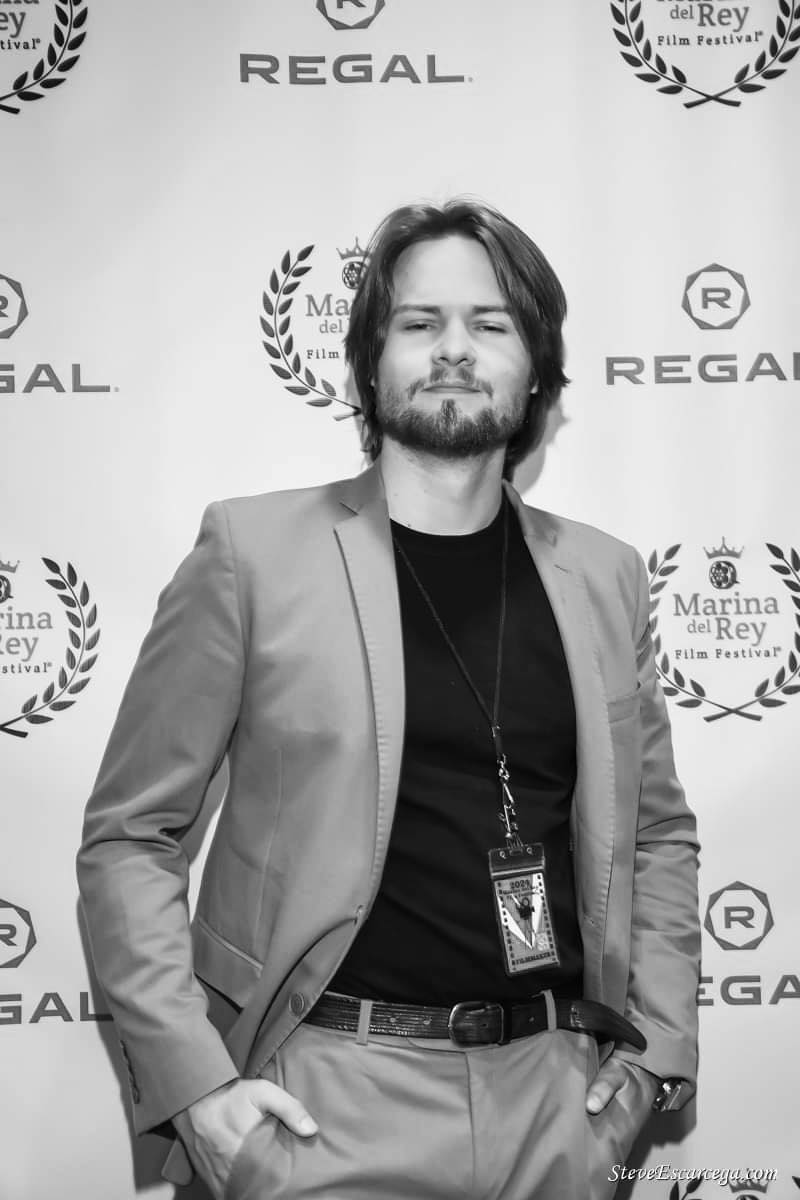
-What has been the greatest difficulty you faced in producing your project?
Definitely the novelty of it all. When we started Sitting in a Dream, we barely knew anything about filmmaking or producing music videos. Before this one came about, our experience was limited to a bunch of high school amateur shorts and fake trailers shot on a tiny Panasonic camcorder in our old Soviet panel housing backyards. This was our first real attempt at more or less professional filmmaking, and Sitting in a Dream was originally meant to be part of a series of promos for an arthouse Syd Barrett-inspired film we were planning but never ended up making (hence the title).
From the start our aim with it was festivals, which is why the production quality had to urgently get much less embarrassing. At last, we left behind our usual “Moscow Hollywood” setup—our affectionate term for the Soviet brick jungle where we had filmed everything up to that point—and drastically expanded our location scouting to ensure the material properly matched our vision. We upgraded to a 4K camera, invested in proper lighting, and expanded the crew by bringing on a gaffer, grips, and a makeup artist, all of whom had to learn on the job since hiring experienced professionals was way out of our budget. Needless to say, my job as a director had gotten a lot tougher, but the fact that we pulled it off speaks volumes about the fast learning and incredible talent of the people I had the privilege to work with.
-Do you think the film industry today has been damaged by political correctness?
Certainly, and quite severely in my opinion. What I have seen happen in the industry almost on every level is the utter politization of the art of filmmaking, to the point where every movie seems to try to make the same old political statement and pander to different minority groups rather than tell an actual story or God forbid entertain the audience. On the other hand, history has shown that such periods of censorship in the arts cannot last forever and, in the end, can only lead to one thing: an explosion of free artistic spirit fueled by a desire to break those chains and tell new, unique stories that inspire and entertain. I believe we might just be on the brink of such a “renaissance”, where filmmakers will once again be prioritizing artistry over agenda.
-What was the greatest source of inspiration for creating your project?
Quite simply, Syd Barrett. I firmly believe he is among the most important figures in music history with one of the most tragic and unusual, at times even magical personal stories that just begs for a biopic about his life. This was my first time working on a music video, so I looked to other music videos for inspiration, particularly Pink Floyd’s 1960s TV promos featuring Syd. The one that impressed me most was their 1967 promo for “Jugband Blues,” Syd’s last song with the band, and what was so interesting about it was how you could see that at that point due to his progressing mental illness he was completely and forever lost in his quiet senseless darkness never to return again. “Now there’s a look in your eyes, like black holes in the sky”, – as his bandmate, Roger Waters would later put it.
Fairy tales were another key inspiration for this music video. Syd Barrett was apparently just as fond of them as I am, which is why for “Golden Hair” he adapted the lyrics from a James Joyce poem that seems to hint at the story of Rapunzel, one of the most iconic fairy tales out there. With its imagery, we aimed to evoke a sort of magical-mythical feel in our music video by featuring fireflies, candles, mysterious masked men, and the Golden-Haired lady herself, all quietly surrounding our hero. The interplay between these elements was designed to transport the viewer into a dreamlike world that blurs the boundaries between reality and fantasy, a reflection of the mesmerizing quality of Barrett’s own work.
-If you could ask a question to a great director from the past, who would you like to talk to and what would you ask them?
I would have definitely loved to talk to Andrei Tarkovsky (who, interestingly, comes from roughly the same region in Russia as my mother) about his filmmaking style and try to get him to explain his unique approach in very plain and practical terms, rather than the artistic and almost spiritual responses he typically gave in his interviews.
-What do you think of the Wild Filmmaker platform?
So far, I am quite fond of it! I think it offers a unique opportunity for us little indie people to participate in some of the biggest and most prestigious cinematic events all over the world, not to mention interview us and allow us to give our own unique perspective on what the art of filmmaking can be. It’s incredibly encouraging to see such platforms providing a voice to independent filmmakers, fostering creativity, and helping us reach wider audiences we might not have been able to access otherwise.

